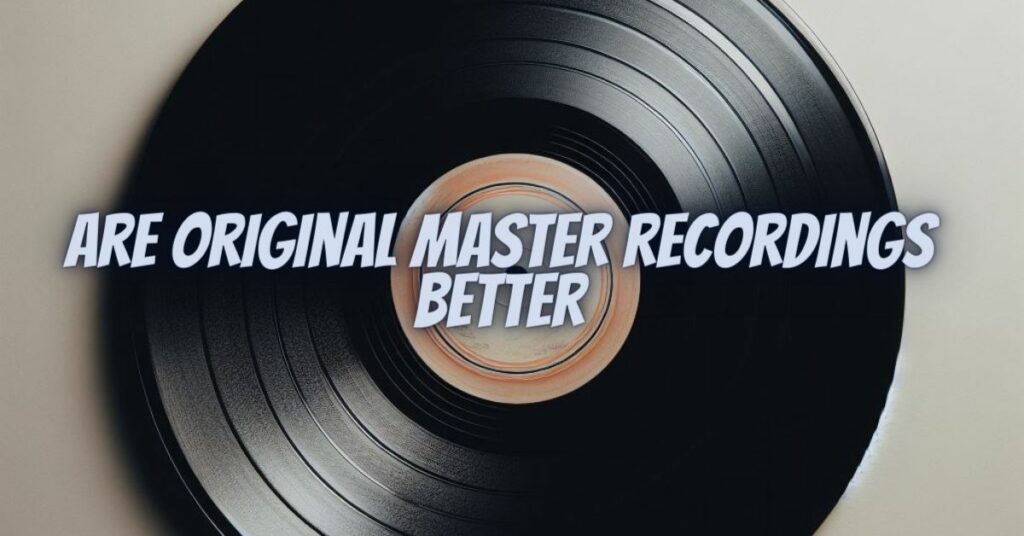For audiophiles and music enthusiasts, the pursuit of the ultimate listening experience is a lifelong journey. One topic that frequently stirs debate in the audiophile community is whether original master recordings are superior to subsequent releases. In this article, we will explore the nuances of this discussion, shedding light on what makes original master recordings a source of fascination for audio connoisseurs.
Understanding Original Master Recordings
Before delving into the debate, it’s essential to comprehend the concept of an original master recording. These are the initial recordings produced in a recording studio, capturing an artist’s performance in its purest form. Original master recordings serve as the foundation from which all other copies, whether vinyl records, CDs, or digital formats, are derived.
The Case for Original Master Recordings
- Unaltered Sound Quality: Original master recordings are untouched by the post-processing techniques applied to subsequent releases. This means they preserve the raw, unadulterated sound of the artist’s performance, offering audiophiles a closer connection to the music as it was originally intended.
- Audiophile-Grade Sound: Audiophiles often gravitate towards original master recordings because they represent the pinnacle of sound quality. These recordings avoid the compression, equalization, and dynamic range limitations that can affect later versions, delivering a listening experience that is second to none.
- Historical Significance: Beyond their sonic attributes, original master recordings carry historical and cultural significance. They serve as invaluable artifacts, documenting the artistic process, the state of recording technology at the time, and the creativity of the musicians involved. Collectors and enthusiasts treasure these recordings for their historical relevance.
The Case Against Original Master Recordings
- Imperfections and Limitations: While original master recordings capture the essence of a performance, they may also retain any imperfections or limitations in the recording process. This can include background noise, microphone artifacts, or other technical quirks that may not be present in later releases.
- Format Challenges: Original master recordings are often stored on analog tapes or other archival formats that may degrade over time. Transferring these recordings to modern formats can be challenging and may introduce quality loss, potentially diminishing their appeal.
- The Potential of Remastering: Skilled audio engineers can significantly enhance the quality of older recordings through the process of remastering. This involves cleaning up audio artifacts, improving clarity, and enhancing detail while preserving the integrity of the original performance. In some cases, well-executed remastered versions can surpass the original master recordings in terms of audio quality.
The question of whether original master recordings are superior to subsequent releases is subjective and multifaceted. Personal preferences, priorities, and the specific recording in question all play a role in shaping individual opinions.
Audiophiles and collectors are drawn to original master recordings for their unadulterated sound, historical value, and audiophile-grade quality. However, it’s crucial to acknowledge that not all original master recordings are equal, and the quality can vary based on recording techniques, equipment, and conditions at the time.
Modern remastering techniques have evolved, enabling audio engineers to breathe new life into older recordings while maintaining the essence of the original performance. Consequently, some listeners may find well-executed remastered versions more appealing than the unaltered original master recordings.
Ultimately, the pursuit of audiophile-grade audio experiences is a deeply personal endeavor, and what truly matters is the joy, emotional connection, and sonic satisfaction that music brings, regardless of whether it’s from an original master recording or a meticulously remastered version.


